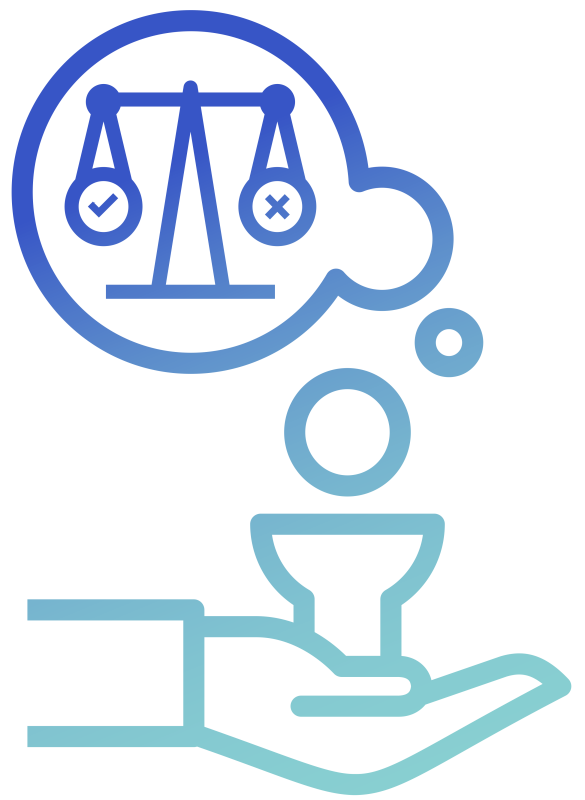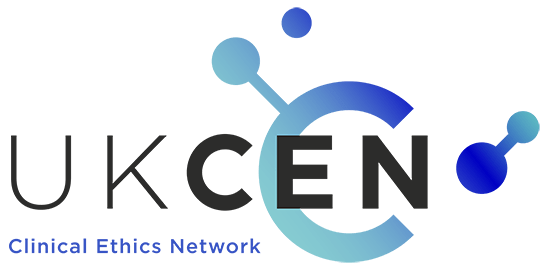Why to Use a Framework
Ethically challenging situations in clinical practice often feature disagreement about the right thing to do. Resolving the disagreement requires someone to recommend an ethical course of action, and then others to reach agreement on whether to adopt this course of action, or whether to propose something different.
After deliberating, a clinical ethics support service, such as a Clinical Ethics Committee (CEC), will sometimes advise on a single course of action. Occasionally, however, the committee might advise that there is more than one defensible option.
Proposing an ethical course of action (or more than one) involves explaining why this action is ethical – this explanation is known as an ethical argument. Good ethical arguments can help resolve ethical uncertainty and it is possible that we can accept and endorse the reasoned conclusion that an argument gives us, even if significant ethical disagreement between different stakeholders continues to exist.
There are various ethical frameworks available, which can aid a CEC in its deliberations. Ethical frameworks are designed to structure our thinking processes to help to us to come to a decision, which we can justify ethically and then communicate to others. A framework also offers a step-by-step approach for a CEC to adopt when analysing an ethical question and developing an ethical argument to support a recommended course of action.
There are three main reasons why adopting an ethical framework is necessary in the context of giving ethical advice within a clinical setting:
- consistency
- transparency, and
- improving ethical rigour in communal deliberation.
Consistency:
Using a framework is an important way of making sure that clinical decisions, or the advice of an ethics committee, are consistent. If you are faced with a decision in a case, and you remember having decided a very similar case, which you felt was justifiable and right, then it stands to reason that if you follow a similar decision-making procedure you should make a similar decision in the case before you.
The only justification for making a different decision would be if, during the procedure, you identified some ethically relevant differences. It makes sense that like cases should be treated alike, and different cases should be treated differently if those differences are ethically relevant.
If your decision is going to be a justifiable decision, then you need to come to it in a way that is informed and consistent. An explicit process for decision-making can help to ensure this.
Transparency:
Using a framework helps to ensure that clinical decisions are open and transparent because it forces you to make your ethical reasoning and discussion explicit.
A clinician or a committee may well have made the right decision for the right reasons, but the decision will be difficult to justify, and be seen as trustworthy, if the reasoning process which led to the decision remains obscure. It is only by making our reasoning process transparent that we can make our decisions properly accountable.

Improving ethical rigour:
In addition to these two procedural rationales, there are also substantive, ethical reasons for adopting a framework-based approach.
Health care is a value-laden and value-driven activity, but these values often remain implicit and unarticulated in discussions of health care practice. Too often, people talk past each other or don’t engage at all because they don’t know, ethically speaking, “where people are coming from”, or because they want to avoid conflict in their personal or professional lives.
It is only within a framework that requires us to make values – our underlying motivations for action – explicit that we can find a shared, common and well-reasoned strategy to deliberate with each other about what is important in the face of an ethical dilemma, to identify any differences we might have, and then to seek to resolve those differences.
Click here to download a PDF with further information about ethical frameworks, including worked-through examples of how each of the different frameworks would approach the ethical analysis of a case.
